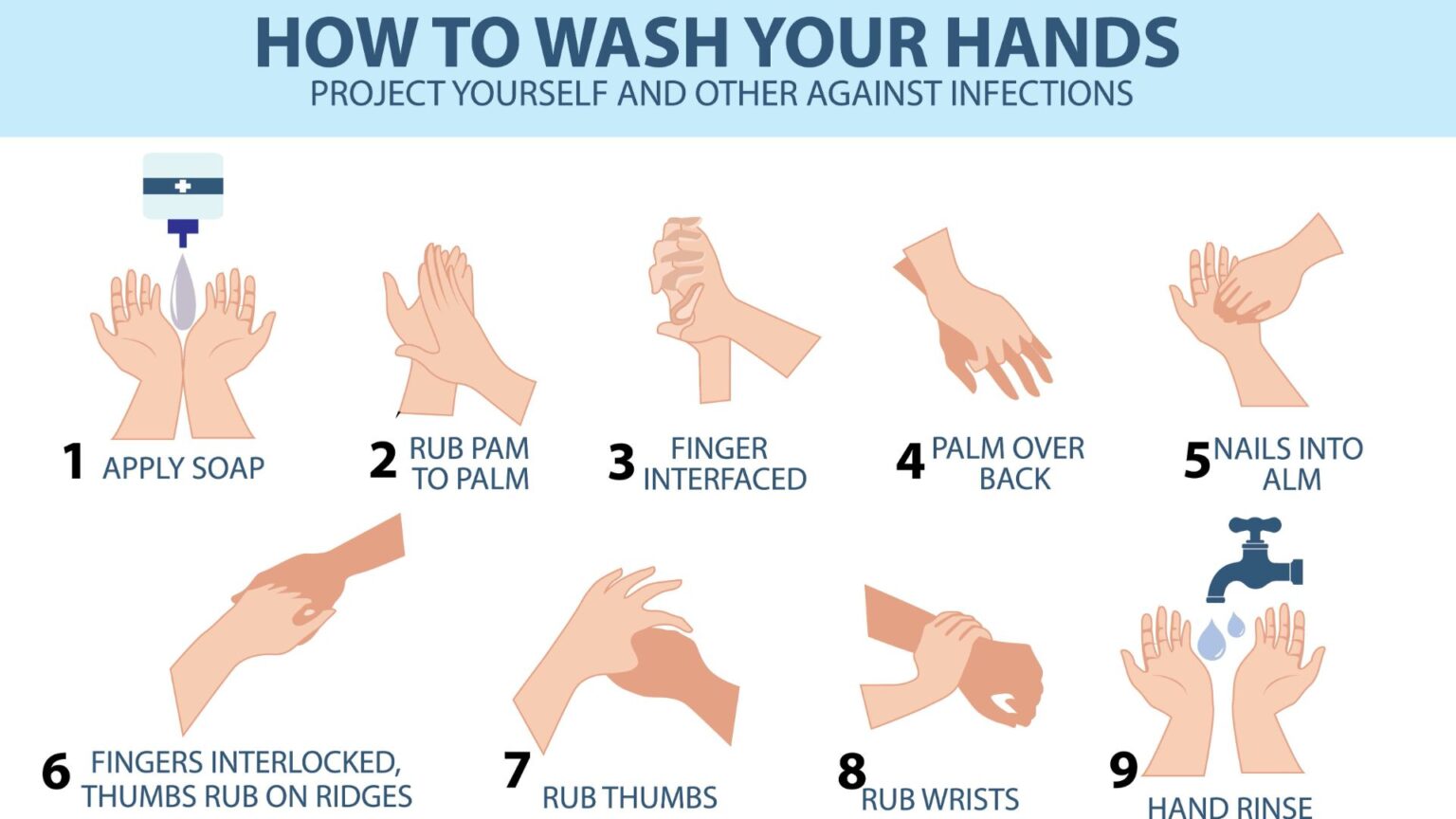
Sales & Support
Sales & Support

Keeping up with all the health regulations involved in owning a restaurant is critical, not just for food safety but for the reputation and success of your business. Managers and business owners need to create an environment where safe, proper handwashing procedures are a priority and provide the right tools and techniques to achieve this.
Each year, an estimated 48 million people get sick from foodborne illnesses, with Norovirus, Salmonella, and Clostridium perfingens topping the list. Nine out of ten outbreaks in restaurants can be traced back to food handlers and food service workers who didn’t properly wash their hands.
An outbreak that starts in your restaurant could result in serious consequences, including:
So, what’s the best way to prevent foodborne illness? Proper handwashing — it’s as simple as that.
And yet, an observational study found that food handlers attempted to wash their hands only 32% of their work day. While they were more likely to wash them properly when preparing food (37%), they were less likely to wash them during other activities, like touching their body (27%).
Health codes play a vital role in restaurant safety as they provide a standard for best practices that reduce the spread of disease. While handwashing and handwashing sink regulations are governed at the state and local level, many states have adopted the FDA’s Food Code, which outlines best practices for maintaining the health, safety, and hygiene of your staff and customers.
The 2022 version of the Food Code outlines where handwashing sinks must be located, how and when employees should wash their hands, and who is responsible for ensuring employees are effectively washing their hands.

While the CDC has five steps people should follow to wash their hands properly, the Food Code details additional steps food handlers should take to ensure their hands are well-cleaned before, during, and after their shift. All food handlers and food service staff should wash their hands for at least 20 seconds using the following procedure:
The Food Code recommends that food handlers wash their hands:
Handwashing sink regulations are set at the state and local level, but most states model their requirements on the Food Code. Hand washing sinks in most restaurants must:
Restaurants aren’t the only food service industry that should be concerned about proper hand hygiene. Food processors, food manufacturers, and food packers are some examples of industries that have had foodborne illness outbreaks.
While these and other industries are subject to state and local regulations, not all are. If you provide food service in any of the following industries, you may need to comply with handwashing and handwashing sink regulations:
As outlined in the Food Code, someone is responsible for ensuring staff wash their hands properly throughout their shift. This often falls to restaurant owners and managers. Training staff on mandatory regulations and demonstrating the proper way to wash their hands will help ensure your workers understand the importance of hand hygiene.

Show new team members critical food safety training and explain how proper handwashing prevents the spread of foodborne illnesses. Visual aids, like videos and posters, can illustrate the steps. Posting signs by handwashing stations reminding staff to wash hands and demonstrating how to wash them properly drives home the importance of good hand hygiene.
Assigning a mentor to observe new team members can help them learn how to wash their hands properly. The mentor can provide feedback to new staff and demonstrate the proper way to wash hands. If necessary, retrain new staff members and remind them that they play a key role in preventing outbreaks.
While staff may have completed mandatory training to ensure they understand the importance of safe and proper food handling, most food safety training certifications are valid for three to five years. Regular in-house training that includes a refresher on proper handwashing can remind staff how and when to wash their hands and give them the opportunity to ask questions about the process.
Though the importance of hand hygiene for food handlers can’t be emphasized enough, studies have shown that people don’t wash their hands as often as they should. Restaurants need to ensure staff wash their hands frequently and properly, and they can take a few steps to overcome some common challenges.
Most state handwashing regulations state that handwashing in the food service industry must happen in a dedicated handwashing sink, not a dishwashing or food preparation sink. Using the wrong sink could violate local regulations and result in someone’s hands becoming contaminated, leading to an outbreak.
To prevent someone from washing their hands in the wrong sink, label sinks as handwashing only. A visual cue will help staff use the proper sink for handwashing and prevent mistakes.
Frequent hand washing often results in dry, irritated skin. This uncomfortable feeling can cause staff to avoid washing their hands as much as they should. Optimizing workflows so employees wash hands when necessary but not excessively will help, as will providing gentle or moisturizing hand soap.
Not all food handlers understand how important proper handwashing is or are motivated to comply. Continual education will help reinforce the importance of proper hand hygiene, and a reward system may improve behaviors.
Some restaurants don’t have enough existing plumbing to install an adequate number of sinks. While you can install new lines, this can be an expensive undertaking, not to mention you may have to close your business temporarily. Mobile and temporary food services face similar issues in that there may not be a way to run any plumbing where they operate.
Frequent and proper hand washing by food handlers helps prevent the spread of germs and outbreaks of foodborne illnesses. Educating staff about the importance of proper handwashing and the role they play in keeping everyone safe helps, as does having enough handwashing sinks throughout your business.
From standalone restaurants to food trucks to concession stands, Ozark River Manufacturing’s portable sinks are a cost-effective alternative to traditional plumbing and enable your staff to wash their hands whenever they need. Our sinks have hot and cold running water, soap and paper towel dispensers, and are NSF-certified, making them code-complaint in nearly every locality.
Contact us today to learn how Ozark River Manufacturing’s portable sink solutions support your restaurant.

Ozark River Manufacturing designs and delivers top-quality, NSF-certified portable sinks. Since 2006, our inventive and bold team has ensured health compliance with quick-connect tanks and instant hot water. With over 55 models, we provide solutions for every need, backed by exceptional customer support and timely delivery. Healthy people matter, and we make a positive impact every day.
Get insights from our team and learn about innovative portable sink solutions and industry news.


Take your time but make sure to save your cart. Drop us your email and we'll take care of the rest!
Code Compliance
Order Cancellations or Modifications
Delivery
Damages and Replacements
After-the-Sale Support
Contact Information
Lead-Times
Our goal is to get you your portable sink in the fastest, most economical method possible. All orders are shipped from our Assembly Plant in Murfreesboro, TN 37129 with a truck carrier (LTL) to the 48 contiguous states. Lead-times vary by product, are demand-driven, and are updated on the product detail pages. Large orders may increase lead-times. Expedited or shipping outside of the 48 contiguous states is also available and may incur additional costs. Please call 866.663.1982 for availability.
Order confirmations include estimated ship dates and are subject to change without notice.
Order Cancellations or Modifications
You can cancel or modify your order in writing before the product has shipped from our location. Cancelations may incur a 5% processing fee if paid by credit card. Please call 1.866.663.1982 or email us at Orders@ozarkriver.com.
Orders that have left our dock will incur a 30% restocking fee, as well as all incurring freight and/or damage charges. The customer is responsible for all damages, so please follow all provided return instructions carefully. Absolutely no changes or cancellations are allowed on custom or large orders.
Disclaimer: Models, styles, colors and availability may change without notice.
[ninja_form id=9]
[caldera_form id=”CF5f5fdf04c0b03″]
We believe that it is our personal responsibility to provide clean hands for people and business because, now more than ever, healthy people matter.
From restaurants and food service businesses that gain new convenience and opportunities as a result of our Ozark River Portable Sinks®, to educators and daycare centers that have healthier students and fewer absentees, to businesses that are now in hand wash code compliance due to implementing our portable sinks – lives our improved with every portable hand sink we manufacture.
We love what we do. We win together. We never give up. We don’t cut corners.
We have a vision with a clear focus – improve lives every day with a convenient solution for better personal hygiene, and the ability to comply with state and local hand wash codes – and we’ve maintained that focus since 2004.
We love saving your day, and we are ‘all hands on deck’ when you need after-the-sale support.
If you’ve ever been cited by a health code inspector for hand-washing code violations, you know how it feels to be in hot water. When hand-washing compliance calls, we answer. And although our sinks are unsinkable, should you need support, we’re here with happy, helping hands.
Support remains at the top of our priority list. We’re here when you need us, and even when you don’t. Call the hotline for application, operation or general support. We’ll be standing by, ready to help with troubleshooting assistance; warranty parts and service; replacement parts and service.
Our sinks have only a .003% warranty replacement rate, which means a 99.7% success rate! Now, that’s a badass sink.
Happy, positive people make products that make other people happy. We’re serious about having fun at work. We take our work seriously, but we don’t take ourselves too seriously.
Ours is a team of highly inventive, bold individuals who happen to make portable sinks. We’re the best at what we do, and we know it.
Our culture prioritizes people and positivity because we know that when our team is joyful, we strive even harder to make you happy.
We invented a line of portable sinks that are well-made, delivered quickly, and installed in a snap. We build them ourselves because nobody else can do it like we do.
Our sinks comply with the rigorous NSF standards, which means that our products undergo relentless testing and our facilities are inspected unannounced. We don’t mind. In fact, we welcome the challenge to perform because we know that the standards are set for the protection of our customers.
Without the expense of plumbing, each customer gains the hygiene benefits of instant hot water with a portable sink.
Our attention to quality is as pure as the hot water we dispense. All of our portable sinks feature instant hot water technology and convenient quick connect tanks. With a variety of styles, sizes and finishes available, every Ozark River Sink is crafted to sturdy, attractive perfection.
We respect your needs and your time. Once you decide to purchase your portable sink, you want to begin reaping the benefits of clean, healthy, happy hands as soon as possible!
Ozark River Manufacturing is uniquely positioned to reach customers and suppliers quickly, efficiently, and cost-effectively. We have shorter lead times than any competitor, [simply say, short lead times?] and a robust distribution network, allowing us increased service capabilities for our customers.
Middle Tennessee’s central location connects us to customers faster; home to the busiest cargo airport in the western hemisphere, six Class 1 railroads, more than 1,000 miles of navigable waterways, and immediate access to eight interstate highways.
What do these nifty stats mean to you? It’s simple. We can reach 60 percent of the U.S. population within an 11-hour drive or less.
Bottom line? With reduced shipping times, you’ll enjoy better health and hygiene with your portable sink as soon as possible.
Remember when someone told you NOT to “put all of your eggs in one basket”? Phooey!Do one thing and do it well. That is our absolute conviction.
Ozark River Manufacturing Co.® is the world’s foremost portable sink manufacturer because this is what we do. In fact, it’s all we do. We design, manufacture, and deliver the finest portable sinks available on the planet. And we proudly believe that is enough.
Hot water hand sinks provide a convenient solution to improve personal hygiene and to comply with state and local codes. Our everlasting commitment to provide a top-quality product that is essential to maximizing health and safety.
Life and business can be challenging. You have a long list of things to do. We are here to make hand washing compliance as easy as possible. Give us a call and check one thing off that list.